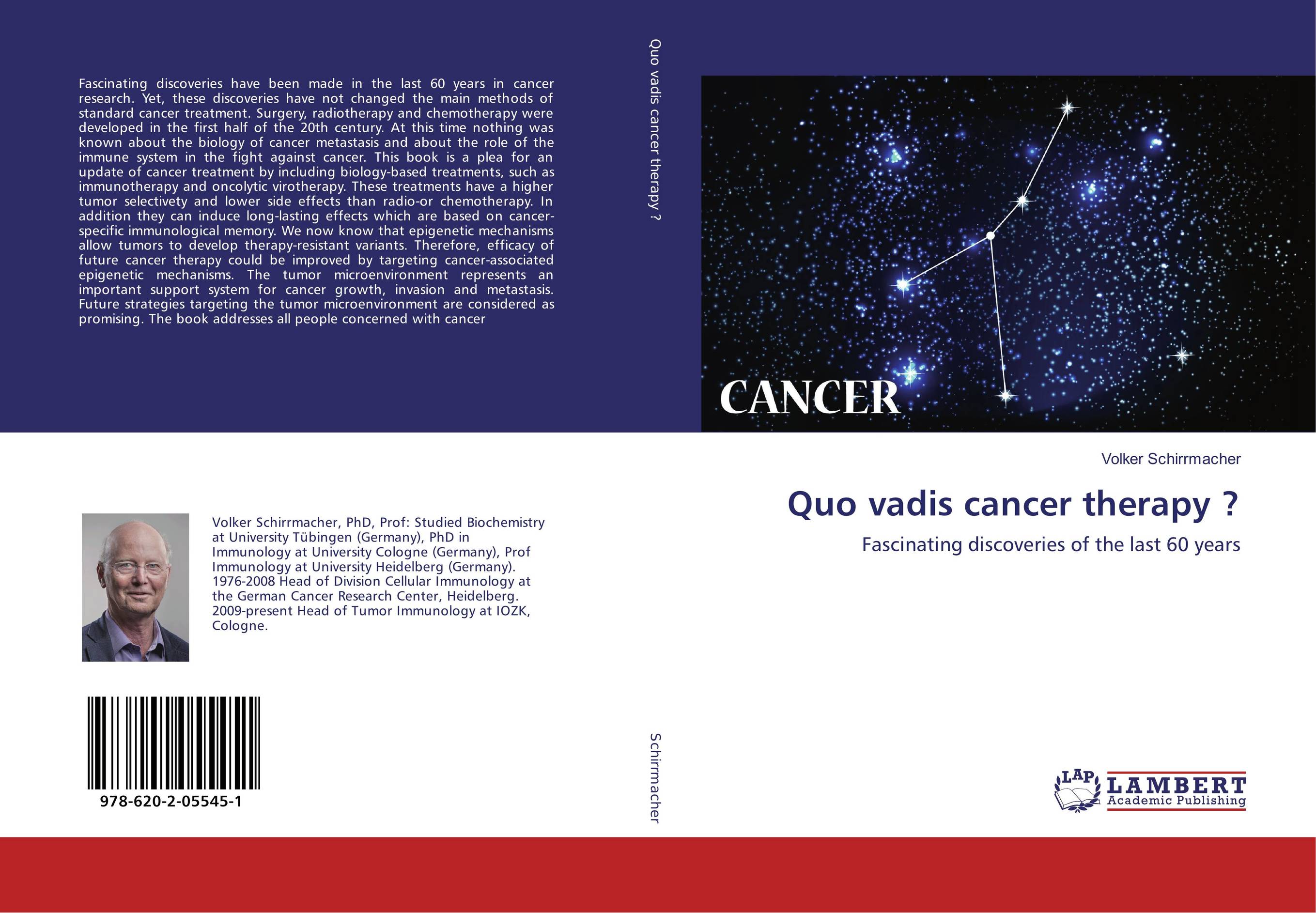| Поиск по каталогу |
|
(строгое соответствие)
|
- Профессиональная
- Научно-популярная
- Художественная
- Публицистика
- Детская
- Искусство
- Хобби, семья, дом
- Спорт
- Путеводители
- Блокноты, тетради, открытки
Quo vadis cancer therapy ?. Fascinating discoveries of the last 60 years

В наличии
| Местонахождение: Алматы | Состояние экземпляра: новый |

Бумажная
версия
версия
Автор: Volker Schirrmacher
ISBN: 9786202055451
Год издания: 2017
Формат книги: 60×90/16 (145×215 мм)
Количество страниц: 360
Издательство: LAP LAMBERT Academic Publishing
Цена: 33381 тг
Положить в корзину
| Способы доставки в город Алматы * комплектация (срок до отгрузки) не более 2 рабочих дней |
| Самовывоз из города Алматы (пункты самовывоза партнёра CDEK) |
| Курьерская доставка CDEK из города Москва |
| Доставка Почтой России из города Москва |
Аннотация: Fascinating discoveries have been made in the last 60 years in cancer research. Yet, these discoveries have not changed the main methods of standard cancer treatment. Surgery, radiotherapy and chemotherapy were developed in the first half of the 20th century. At this time nothing was known about the biology of cancer metastasis and about the role of the immune system in the fight against cancer. This book is a plea for an update of cancer treatment by including biology-based treatments, such as immunotherapy and oncolytic virotherapy. These treatments have a higher tumor selectivety and lower side effects than radio-or chemotherapy. In addition they can induce long-lasting effects which are based on cancer-specific immunological memory. We now know that epigenetic mechanisms allow tumors to develop therapy-resistant variants. Therefore, efficacy of future cancer therapy could be improved by targeting cancer-associated epigenetic mechanisms. The tumor microenvironment represents an important support system for cancer growth, invasion and metastasis. Future strategies targeting the tumor microenvironment are considered as promising. The book addresses all people concerned with cancer
Ключевые слова: Biology, Cancer, pathogenesis, paradigm, antibodies, immunotherapy, oncolytic viruses, vaccines, stable disease, memory T cells



